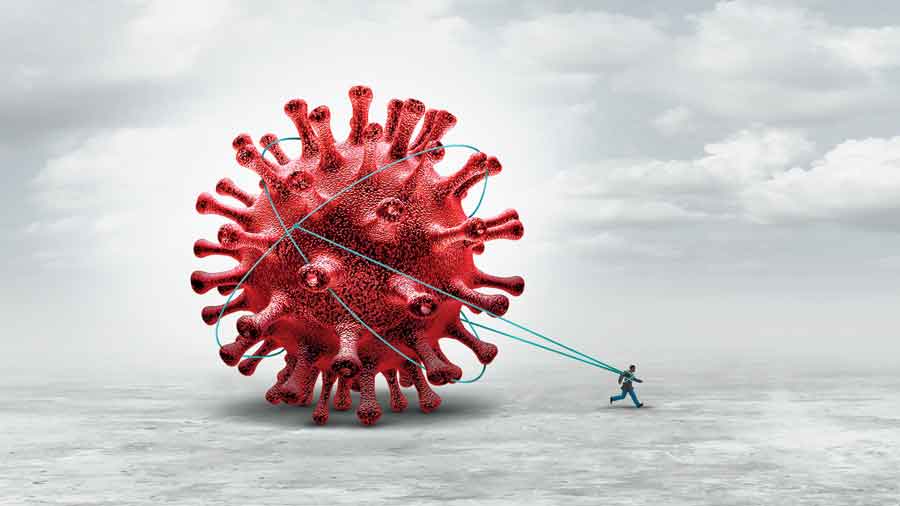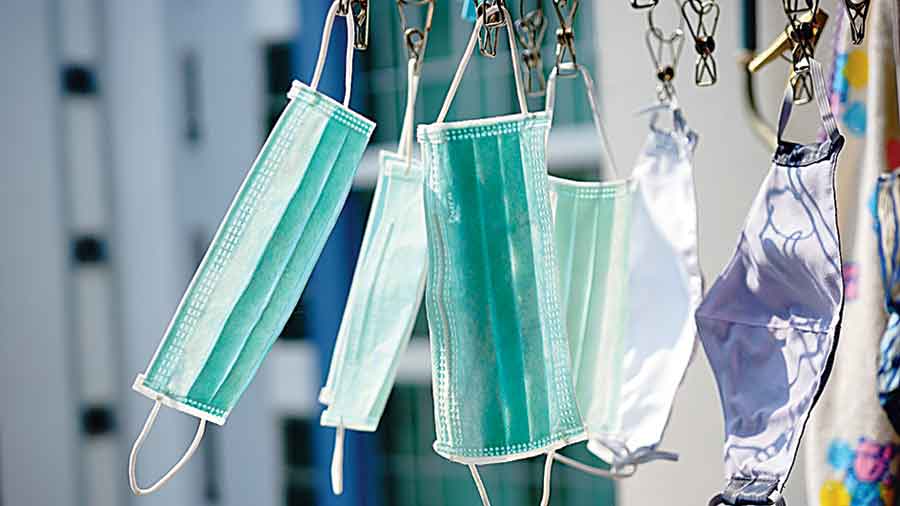The Union health ministry on Saturday asked all states to urge people to wear masks in crowded and closed spaces, avoid overcrowding and get tested if they develop respiratory symptoms, amid a rise in Covid-19 infections since mid-February.
The ministry also asked states to increase their counts of Covid-19 tests, citing concerns that current testing levels in some states are “insufficient” compared to World Health Organisation standards that prescribe 140 tests per million population.
“It is critical to maintain optimum testing for Covid-19,” health secretary Rajesh Bhushan and health research secretary Rajiv Bahl said in their joint letter sent to the states. “This is especially important to identify any emerging hotspots and take pre-emptive steps to curb virus transmission.”
Experts say testing can increase only when people with symptoms approach healthcare facilities for a diagnosis.
India’s count of active Covid-19 cases has increased from about 1,800 in mid-February to 8,600 on March 24. Most of the active cases are clustered in a few states — Kerala accounted for 26 per cent of the active cases on Saturday, followed by Maharashtra (22 per cent), Gujarat (14 per cent), Karnataka (9 per cent) and Tamil Nadu (6 per cent).
Amid the rising infections, the rates of hospitalisation and deaths from Covid-19 remain low, Bhushan and Bahl wrote. Medical experts have attributed the low rates of severe disease to immunity acquired by people from vaccination or prior Covid-19 infections or from both.
But the gradual rise in infections, they said, needs “reinvigorated public health actions” to contain the surge. They have urged states to keep a close watch on influenza-like illness and severe acute respiratory illness for early detection of any clusters.
Scientists tracking genetic changes in circulating coronavirus versions believe the current surge in India is driven by a new variant called XBB.1.16 which is a sublineage of omicron, the variant that had caused India’s third Covid-19 wave in January 2022.
Early evidence suggests that XBB.1.16 can spread fast and cause a surge in infections. But, scientists say, its capacity to cause severe disease appears — for now — no different than other omicron siblings that have caused infections across India over the past year.
The health ministry has also asked states to reorient frontline health workers for early diagnosis and treatment of respiratory infections, take stock of hospital preparedness including human resources, drugs, beds, including intensive care unit beds, medical equipment and medical oxygen.












